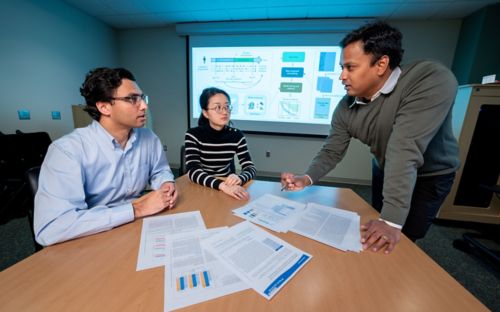Having trouble reading? Hearing loss could be part of the problem
Hearing loss is a common side effect of brain tumors and their treatment. We’ve found a link between hearing loss and difficulty with reading.
Brain tumors are the second most common pediatric cancer, and we’re learning more about the effects of treating those tumors — such as how hearing loss affects the skills involved in learning to read.
Hearing loss is a common side effect of brain tumors and their treatment. Treatments put children at risk for cognitive declines, but we’ve found a more definitive link between hearing loss and learning to read.
Brain tumor survivors and reading
The international study of 260 adolescent brain tumor survivors included 64 with severe hearing loss. We studied their performance on measures of the building blocks of reading. The list included information processing speed, working memory, letter-word identification and phonological skills, which involves the ability to use units of sound, called phonemes, to decode words.
Despite measures during treatment to protect hearing, a significant percentage of pediatric brain tumor survivors still develop severe hearing loss after treatment. A St. Jude study found that nearly a third of brain tumor patients developed hearing loss despite treatment with a drug designed to protect hair cells in the inner ear that are essential for hearing.
Hearing loss is further complicated because it may go undetected.
A therapy plan for brain tumor survivors
This is the first known study to identify the key cognitive components that lead to later reading problems in pediatric cancer survivors. Compared with other survivors, individuals with severe hearing loss experienced significant declines in reading skills following treatment. A report on our research appeared in the Journal of Clinical Oncology.
Reading is a skill that takes a long time to learn, and we depend on it for learning throughout our lives. Our findings suggest that interventions for survivors with hearing loss and reading challenges should focus on improving neurocognitive and language-based skills such as processing speed and phonemics before tackling more complex tasks like reading comprehension.
This study also highlights the need for close audiological monitoring early in treatment to identify patients who experience hearing loss and then create a therapy plan. More research is needed to determine how and when to intervene to bolster reading skills in young cancer patients. That includes monitoring how cochlear implants or hearing aids affect reading and neurocognitive skills in young cancer survivors.






